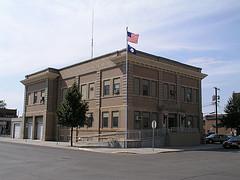With the property absence the Utopia guarantees igualdadede its citizens, therefore the sources of conflicts, (poverty, envies and others), soeliminadas in favor of its Collectivism. Its equality estimates the dither dotrabalho and the horror to the social parasitism. Through the Pedagogia, absolute object of the State, the Utopiaage on the human material, eradicating its primitive nature, anarchical eindividualista. The pedagogia is used to introjetar in the man the order and the rule, in order to suppress the plea and the disagreement, making with that its estruturamental if holds the social structure in accordance with. The religion in the Utopia believes immortality of the soul, massem questions of theological order. The faith is come back toward a creative God, but noh an institutionalized church, being thus the religion the only one caractersticada Utopia to run away from the absolute Dirigismo. It has tolerance is ample since that nohaja clutter. In the Utopia a religion is not had, in the common meaning of the word, but only one deism, so that if it does not create a proper organization, independent, thus establishing an apparent religious freedom, therefore the Utopia in itself mesmoj is the religion, a Auto-worship of the city and its way of life.
He was through the disposal of the treat elements above queMore projected its critical one against the European society of its time, that viviade luxuries and of the work of the inferior classrooms social and in specific to the king dInglaterra Enrique VIII. It criticized the injustices and it showed an alternative opposing social deorganizao of its time. 3) It makes an analogy enters the Utopia of Lives and the NovAtlntida de Bacon. At the same time, it discloses points distanciam that them. We know that the workmanship of as well as Lives of buscamexpor Bacon an alternative the society where they live, moved for one grandedesejo of construction of the perfect place for the man, beyond the critical social aorganizao of its time.
 Article 4 of the series 'creation of new songs and music' The author – Vladimir man loves to have fun: for the love of pleasure we are the best and the first man on earth so constituted that he likes to have fun. Love for pleasures, and especially the number and sophistication of the methods of obtaining the pleasures we have left far behind all other sentient beings living on Earth. For fun people working hard and doing nothing, makes a brilliant discovery and getting drunk as a lord, bear children and solve the murder. For the pleasure of "risk groups" have to pay health, freedom, punishment, lack of pleasure. For some pleasure or desire for him having to pay health, freedom, punishment, lack of pleasure.
Article 4 of the series 'creation of new songs and music' The author – Vladimir man loves to have fun: for the love of pleasure we are the best and the first man on earth so constituted that he likes to have fun. Love for pleasures, and especially the number and sophistication of the methods of obtaining the pleasures we have left far behind all other sentient beings living on Earth. For fun people working hard and doing nothing, makes a brilliant discovery and getting drunk as a lord, bear children and solve the murder. For the pleasure of "risk groups" have to pay health, freedom, punishment, lack of pleasure. For some pleasure or desire for him having to pay health, freedom, punishment, lack of pleasure.  DIAMANTINA, a trip in the time Augustin Menotti Orlandi * SUMMARY the article strengthens as the city of Diamantina if it inserts in National History. The description of its historic site. The influence of its diamonds in the golden period. Characteristics and objectives of its personages: Chica of Siva and JK. The article is concluded with proposals of bigger attention of the historians and archaeologists stop with the cultural preservation of physical patrimony e, mainly, human being. Word-key: Diamantina; Chica Da Silva; JK; cultural patrimony *Aluno of the Course of History of the Salty University of Oliveira, Belo Horizonte, MG, INTRODUCTION the historical monuments and the archaeological remaining portions is important carriers of messages and, for its proper nature as material culture, they are used for the social actors to produce meant, in special when materializing concepts as national identity and ethnic difference.
DIAMANTINA, a trip in the time Augustin Menotti Orlandi * SUMMARY the article strengthens as the city of Diamantina if it inserts in National History. The description of its historic site. The influence of its diamonds in the golden period. Characteristics and objectives of its personages: Chica of Siva and JK. The article is concluded with proposals of bigger attention of the historians and archaeologists stop with the cultural preservation of physical patrimony e, mainly, human being. Word-key: Diamantina; Chica Da Silva; JK; cultural patrimony *Aluno of the Course of History of the Salty University of Oliveira, Belo Horizonte, MG, INTRODUCTION the historical monuments and the archaeological remaining portions is important carriers of messages and, for its proper nature as material culture, they are used for the social actors to produce meant, in special when materializing concepts as national identity and ethnic difference.